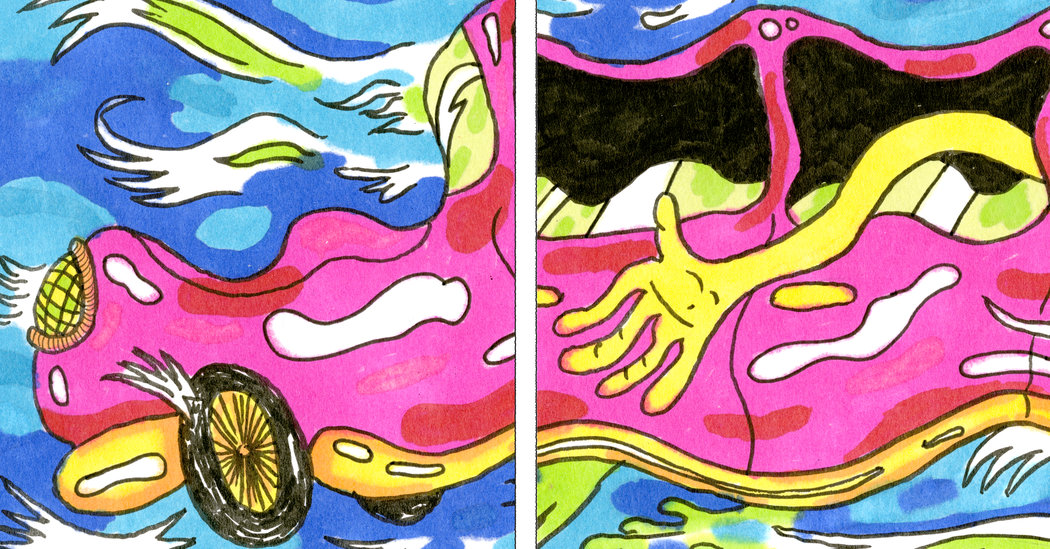
“I’ll start driving when Saudi Arabian women are allowed to!” I would declare to my mom as a teenager, as if I were one of those celebrities who used to promise that they wouldn’t marry until gay people could. I was always half-kidding, but jokes have a way of dressing up inertia in a glossy armor.
The long answer for why I don’t drive is that being a sheltered firstborn daughter living between two cultures — American and Somali — morphed into indifference at some point.
At the time, I was deeply nerdy, introverted and anxious — I had my Milo Ventimiglia GeoCities fan page to tend to anyway! — and my protective parents rarely encouraged me to leave the house. So I’d make plans to learn to drive, then abandon them later.
The short answer is: I’m extremely lazy.
I’m not without some shame. Being unable to drive is the punch line of the insult Tai delivers to Cher in “Clueless”: “You’re a virgin who can’t drive.”
Until recently, it was the image of disempowered womanhood in Saudi Arabia. And it’s one of the defining traits of a “scrub,” according to TLC’s anti-scrub anthem (“Hanging out the passenger side/Of his best friend’s ride”).
My life has been marked by moments in cars, from the joyful (road trips where my mom and I would compete against each other in a never-ending game of Yellow Car, keeping score of every non-taxi yellow car we passed on the road), to the tempestuous (like when, at 17, I flung open the side door of my mom’s minivan to tuck and roll down the highway, though I changed my mind), to the surreal (when I drove for the first time two summers ago).
It happened one night in Sterling, Va., at age 26. It was exhilarating and cathartic to skid jagged laps around a parking lot, as if I were a gleeful child playing a frenzied game of go-kart. I felt the freedom that had been in front of my nose the whole time.
I fantasized about all the driving I’d do as a new woman: the rides I’d give people for kindly hauling me around all the time, the texts I wouldn’t send because I value my safety, the music I’d listen to with the windows down.
I’d need a permit and then a license for that, of course.
My aunt Hodan, her daughter Farah and my cousin Sagal were all passengers and witnesses to the crime. My mother might as well have been present, too, so concerned was I about her disapproval.
Like many immigrant daughters, I fear my mom more than I fear God, death or the police, so it was completely logical that the newfound sense of freedom quickly turned to panic. The hairs on my arm bristled as I sat behind the wheel.
It’s usually the mundane — like how I must look to others — that creates discord between my mom and me. The greatest transgression, after all, is to look like a “ciyaal suuq,” a pejorative term that translates to “street kid” or “hoodlum.” It is meant to shame young people who push the boundaries of Somali appropriateness, or just to shame girls for doing basic stuff, like driving a car illegally.
If I tell my mother nothing, I thought, then there’s nothing she can feel ashamed and embarrassed about on my behalf. It’s easier than having to deal with a confrontation, which is why I usually tell her nothing.
I’ve grown increasingly uncomfortable, though, with just how comfortable I’ve become with hiding so many details of my life from my mom, the person I love most in the world. So I decided to push past that knee-jerk impulse to lie by omission, and volunteered the information instead.
“I drove!” I yelled through the phone.
“Good. You should get your license now.”
That was it. I told her the whole truth about a transgression, bending the arc of our relationship toward honesty for the first time.
In the wider culture, American youth drive without permits and licenses every day, so this moment may seem small, even juvenile. But to me, every time my mother doesn’t make me feel guilty for the small stuff, it feels like I’m getting away with murder.
As my little sister tweeted recently, “Somali kids enter their 20s and start doing stuff cadaan (white) high schoolers have been doing like playing Spin the Bottle.” To which I replied, “This is our rumspringa.”
I know the tightrope balance of chasing banal firsts in a quest to liberate myself from cultural FOMO while keeping my sharaf — honor — passably intact.
I know what it means to have the retinas of others burning the back of my head, callusing my aura.
My mother’s protectiveness, in its proper context, is to shield me from ill-intentioned members of my community preoccupied with the so-called honor of girls and women.
The least I can do is end my rumspringa, and learning to drive can do that for me, I think.
In June, as the first Saudi women received driver’s licenses, I opened a form for driving school on my laptop and downloaded a permit exam practice app on my phone. Both sit incomplete between other tabs, but I refuse to close them. I like keeping my options open.
Safy-Hallan Farah is the editor in chief of 1991, a forthcoming Somali culture magazine.
Rites of Passage is a joint project of Styles and The Times Gender Initiative. For information on how to submit an essay, click here.







